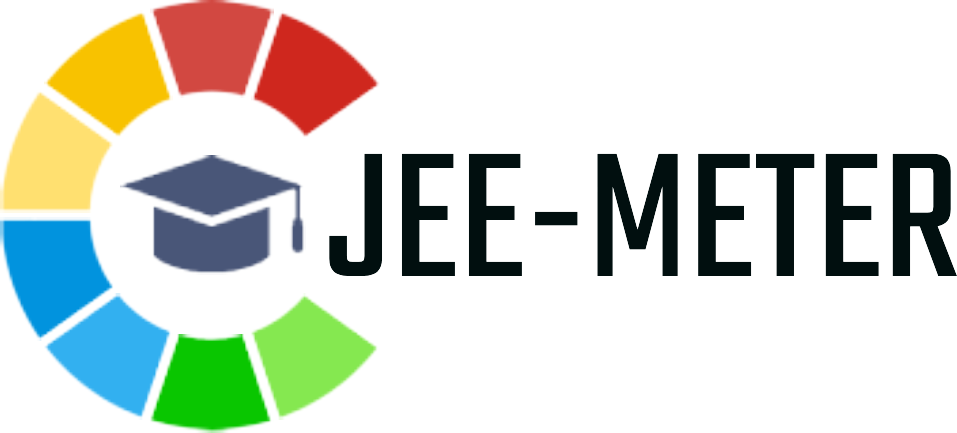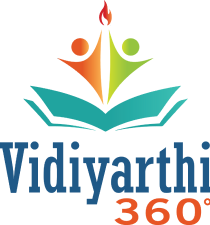|
Features
|
Details
|
|
Exam Name
|
Graduate Aptitude Test in Engineering (GATE)
|
|
Conducted By
|
GATE is conducted by the Indian Institute of Science (IISc) Bangalore and seven Indian Institutes of Technology (IITs) (Bombay, Delhi, Guwahati, Kanpur, Kharagpur, Madras, and Roorkee) on behalf of the National Coordination Board (NCB)-GATE, under the Department of Higher Education, Ministry of Education, Government of India.
|
|
Purpose
|
- Admission to Postgraduate Programs – Used for entry into M.Tech, M.E., M.S., and Ph.D. programs at IITs, NITs, IIITs, and other top institutes.
- Recruitment in PSUs – Many Public Sector Undertakings (PSUs) like ONGC, IOCL, NTPC, and BHEL use GATE scores for hiring engineers.
- Research and Fellowships – Qualifying GATE can help candidates secure research fellowships and financial aid from government organizations like CSIR and DRDO.
- Higher Studies Abroad – Some foreign universities (like in Germany and Singapore) accept GATE scores for admissions.
- Career Advancement – Helps professionals seeking better opportunities in technical fields.
|
|
Exam Sessions
|
The GATE exam is conducted once a year, usually in the February session.
- It is held on multiple days and slots over two to three weekends.
- The exam is conducted in two sessions per day:
- Forenoon Session: 9:30 AM – 12:30 PM
- Afternoon Session: 2:30 PM – 5:30 PM
|
|
Application Mode
|
Online
|
|
Steps of Application
|
- Registration – Visit the official GOAPS portal and register using a valid email ID and mobile number.
- Form Filling – Enter personal details, educational qualifications, and preferred exam cities.
- Upload Documents – Upload scanned copies of photograph, signature, category certificate (if applicable), and academic documents.
- Fee Payment – Pay the application fee online via debit/credit card, net banking, or UPI.
- Final Submission – Review the details and submit the form. Save a copy for future reference.
- Correction Window (if applicable) – Candidates can edit certain details within the correction period by paying an extra fee.
|
|
Application Fees
|
For Indian Exam Centres
- General/OBC/EWS – ₹1,800
- Female/SC/ST/PwD – ₹900
- Late Fee – Extra ₹500
For International Exam Centres
- Dubai, Singapore – $100
- Dhaka, Kathmandu – $50
Application fee is Non-refundable
|
|
Payment Mode
|
Online (Credit/Debit Card, Net Banking, UPI)
|
|
Eligibility Criteria
|
1. Educational Qualification
- Candidates must have completed or be in the final year of a Bachelor’s degree (B.E./B.Tech/B.Sc./B.Arch) or a Master’s degree (M.Sc./MCA/M.Tech) in a relevant field.
- No minimum percentage required.
2. Age Limit
- No age limit for GATE applicants.
3. Nationality
- Indian citizens and international candidates from Bangladesh, Nepal, Sri Lanka, Ethiopia, and UAE can apply.
4. Number of Attempts
- No restriction; candidates can take GATE multiple times.
5. Year of Qualification
- Candidates in their 3rd year or final year of an eligible degree program can apply.
|
|
Mode of Exam
|
online (computer-based test)
|
|
Medium of Exam
|
English only
|
|
Duration of Exam
|
3 hours (180 minutes)
|
|
Types of Questions
|
Multiple Choice Questions (MCQs)
|
|
Papers
|
GATE is conducted for 30 subjects (papers). Candidates can choose one or two papers based on eligibility.
List of GATE Papers
- Aerospace Engineering (AE)
- Agricultural Engineering (AG)
- Architecture and Planning (AR)
- Biomedical Engineering (BM)
- Biotechnology (BT)
- Civil Engineering (CE)
- Chemical Engineering (CH)
- Computer Science and Information Technology (CS)
- Chemistry (CY)
- Electronics and Communication Engineering (EC)
- Electrical Engineering (EE)
- Environmental Science and Engineering (ES)
- Ecology and Evolution (EY)
- Geomatics Engineering (GE)
- Geology and Geophysics (GG)
- Instrumentation Engineering (IN)
- Mathematics (MA)
- Mechanical Engineering (ME)
- Mining Engineering (MN)
- Metallurgical Engineering (MT)
- Naval Architecture and Marine Engineering (NM)
- Petroleum Engineering (PE)
- Physics (PH)
- Production and Industrial Engineering (PI)
- Statistics (ST)
- Textile Engineering and Fibre Science (TF)
- Engineering Sciences (XE)
- Life Sciences (XL)
- Humanities & Social Sciences (XH)
- Data Science & Artificial Intelligence (DA)
|
|
Exam Pattern
|
Total Marks: 100
Total Questions: 65
General Aptitude (GA) – 15 Marks (Compulsory for all papers)
- 5 questions × 1 mark = 5 marks
- 5 questions × 2 marks = 10 marks
Core Subject & Engineering Mathematics – 85 Marks
- Engineering Mathematics (varies by paper): 13-15 Marks
- Core Subject Questions: 70-72 Marks
Question Types:
- Multiple Choice Questions (MCQs)
- Multiple Select Questions (MSQs)
- Numerical Answer Type (NAT)
|
|
Syllabus
|
The syllabus varies by subject, but it generally includes the following:
1. General Aptitude (Common for All Papers) – 15 Marks
- Verbal Ability: Grammar, Sentence Completion, Word Groups, Critical Reasoning
- Numerical Ability: Data Interpretation, Algebra, Probability, and Basic Math
2. Engineering Mathematics (For Most Technical Papers) – 13-15 Marks
- Linear Algebra
- Calculus
- Differential Equations
- Probability & Statistics
- Complex Numbers
- Fourier Series & Transforms
3. Core Subject (Varies by Discipline) – 70-72 Marks
Each paper focuses on a specific engineering or science discipline. Some major subjects include:
- Computer Science (CSE): Data Structures, Algorithms, Operating Systems, Databases, Networks
- Mechanical Engineering (ME): Thermodynamics, Fluid Mechanics, Machine Design, Strength of Materials
- Electrical Engineering (EE): Circuit Theory, Power Systems, Control Systems, Signals & Systems
- Civil Engineering (CE): Structural Analysis, Geotechnical Engineering, Environmental Engineering
- Electronics & Communication (ECE): Analog & Digital Circuits, Communications, Signal Processing
- Chemical Engineering (CH): Fluid Mechanics, Heat & Mass Transfer, Process Control
- Instrumentation Engineering (IN): Sensors, Control Systems, Digital & Analog Electronics
- Physics (PH): Classical Mechanics, Quantum Mechanics, Electromagnetism
- Mathematics (MA): Linear Algebra, Calculus, Differential Equations
|
|
Marking Scheme
|
Multiple Choice Questions (MCQs)
- 1-mark & 2-mark questions
- Negative marking:
- 1-mark question: -0.33 for each wrong answer
- 2-mark question: -0.66 for each wrong answer
Multiple Select Questions (MSQs)
- 1-mark & 2-mark questions
- No negative marking
Numerical Answer Type (NAT)
- 1-mark & 2-mark questions
- No negative marking
|
|
Preparation Tips
|
1. Understand the Syllabus & Exam Pattern
- Go through the official GATE syllabus for your subject.
- Identify important topics and weightage based on previous years' papers.
2. Make a Study Plan
- Divide topics into easy, moderate, and difficult categories.
- Allocate daily study hours and set weekly/monthly targets.
3. Use Standard Study Materials
- Refer to standard textbooks (e.g., Engineering Mathematics by B.S. Grewal).
- Use NPTEL lectures and other online resources.
- Follow previous GATE toppers' recommendations.
4. Practice Regularly
- Solve previous 10-15 years’ GATE papers.
- Attempt mock tests & topic-wise quizzes.
- Focus on Numerical Answer Type (NAT) questions.
5. Improve Time Management
- Simulate real exam conditions during mock tests.
- Focus on accuracy & speed to avoid negative marking.
6. Strengthen Weak Areas
- Revise concepts where you make frequent mistakes.
- Take short notes for quick revision.
7. Stay Consistent & Motivated
- Take regular breaks to avoid burnout.
- Join study groups or online forums for discussion.
- Maintain a healthy routine with proper sleep & exercise.
|
|
Helpline numbers
|
1. Zone-1: Indian Institute of Science (IISc) Bengaluru
- Helpdesk Number: 080-2293-2644
2. Zone-2: Indian Institute of Technology (IIT) Bombay
- Phone Numbers: 022-2576-7068, 022-2576-7022
3. Zone-3: Indian Institute of Technology (IIT) Delhi
- Phone Number: 011-2659-1749
4. Zone-4: Indian Institute of Technology (IIT) Guwahati
- Phone Numbers: 0361-258-2751, 0361-258-2755
5. Zone-5: Indian Institute of Technology (IIT) Kanpur
- Phone Numbers: 0512-259-6962, 0512-259-6963
6. Zone-6: Indian Institute of Technology (IIT) Kharagpur
- Phone Numbers: 03222-282091, 03222-282095
7. Zone-7: Indian Institute of Technology (IIT) Madras
- Phone Number: 044-2257-8200
8. Zone-8: Indian Institute of Technology (IIT) Roorkee
- Phone Number: 01332-284531
|
|
Email address
|
1. Zone-1: Indian Institute of Science (IISc) Bengaluru
- Email: helpdesk.gate@iisc.ac.in
2. Zone-2: Indian Institute of Technology (IIT) Bombay
- Email: gateoffice@iitb.ac.in
3. Zone-3: Indian Institute of Technology (IIT) Delhi
- Email: gate@admin.iitd.ac.in
4. Zone-4: Indian Institute of Technology (IIT) Guwahati
5. Zone-5: Indian Institute of Technology (IIT) Kanpur
6. Zone-6: Indian Institute of Technology (IIT) Kharagpur
- Email: gateonline@adm.iitkgp.ac.in
7. Zone-7: Indian Institute of Technology (IIT) Madras
8. Zone-8: Indian Institute of Technology (IIT) Roorkee
|
|
Office Address
|
1. Zone-1: Indian Institute of Science (IISc) Bengaluru
- Address: GATE Office, IISc Bengaluru, Bengaluru 560 012
2. Zone-2: Indian Institute of Technology (IIT) Bombay
- Address: GATE Office, IIT Bombay, Powai, Mumbai 400 076
3. Zone-3: Indian Institute of Technology (IIT) Delhi
- Address: GATE Office, IIT Delhi, Hauz Khas, New Delhi 110 016
4. Zone-4: Indian Institute of Technology (IIT) Guwahati
- Address: GATE Office, IIT Guwahati, Guwahati 781 039
5. Zone-5: Indian Institute of Technology (IIT) Kanpur
- Address: GATE Office, IIT Kanpur, Kanpur 208 016
6. Zone-6: Indian Institute of Technology (IIT) Kharagpur
- Address: GATE Office, IIT Kharagpur, Kharagpur 721 302
7. Zone-7: Indian Institute of Technology (IIT) Madras
- Address: GATE Office, IIT Madras, Chennai 600 036
8. Zone-8: Indian Institute of Technology (IIT) Roorkee
- Address: GATE Office, IIT Roorkee, Roorkee 247 667
|
|
Official Website
|
https://gate2025.iitr.ac.in/
|






 Home
Home Find Colleges
Find Colleges Contact
Contact Latest News
Latest News



